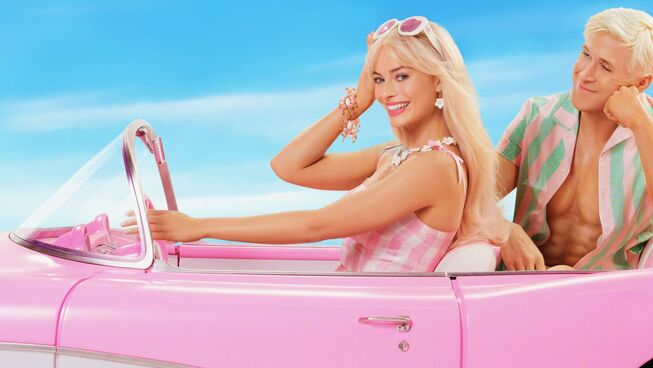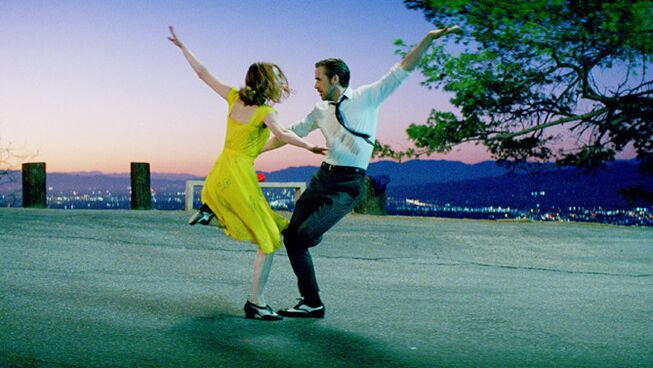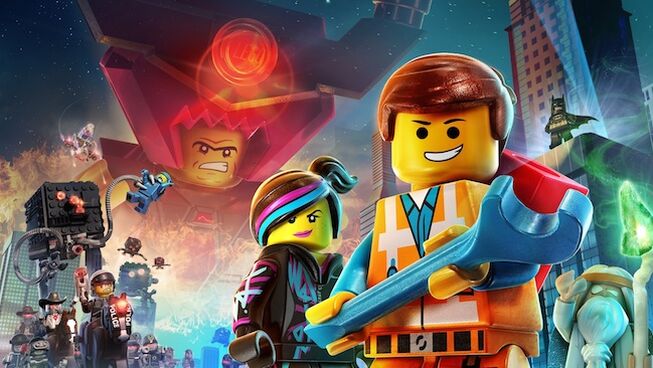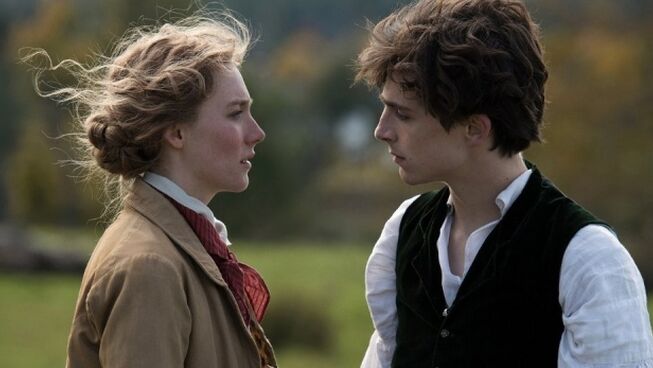Barbie

⭐️ ⭐️ (out of 5)
One thing that always brings a smile to my face is the memories of our children playing in our home. To have three daughters who all had long blond hair and the natural beauty of their mother, it came to be a natural consideration that they would receive Barbie dolls as gifts. Our girls had a pink carry case filled with these dolls, clothing, and accessories. We didn’t overthink what message this sent to them as they travelled into their teen years, where body image would become a significant issue. Ultimately, these dolls provided hours of joy for our girls, and to think I would be talking about these toys as adults hadn't occurred to me.
Except the world has been taken over by a pink wave of Barbie-mania with the upcoming release of the live-action film starring Margot Robbie (Babylon) and Ryan Gosling (La La Land) as Barbie and Ken, respectively. Granted, it makes you wonder how two Academy Award-nominated actors could be involved in the Mattel-sponsored film project. That is until you see that the filmmakers are the exceptionally talented wife/husband team, Greta Gerwig (Little Women), and Noah Baumbach (Marriage Story). This surprising choice to helm this film has led to much speculation about the satirical messaging and artistic style of Barbie’s journey into self-awareness and purpose.
Unlike the animated films that have defined this blond icon to generations, Gerwig’s adaptation has the central character living in the idyllic world of Barbieland. A world where everything seemingly is perfect with there being a balance of cultural representation and the ‘Barbies’ rule the community. The Kens of the community primarily serve as eye candy and try to impress the Barbies of this land. Until the central Barbie (Robbie) begins to have thoughts connected to the real world, such as death and cellulite. After a counselling session with weird Barbie (Kate McKinnon), Barbie decides to travel by toy-generated montage to the real world to find her true owner, and she is unexpectedly joined by Ken (Gosling). Yet, upon arrival, she realises that the real world is not the utopia she had expected when she left her life behind.
Let's get it out of the way, I'm not the target audience for this film. I will admit this up front, but I do appreciate good entertainment regardless of the package it might be delivered in. Despite the indulgent use of pink, the over-the-top antics of the cast, and the obviously satirical nature of the humour, I did my best to enjoy this movie. Alas, I failed to find much that I enjoyed about this Barbie adventure. At first, it was difficult to put a finger on what it was about this story that didn’t sit right with me, since the initial tone of the film was manufactured joy that comes from movies about toys. Yet, nothing seemed quite right within this plasticine world despite the yearning to honour the fond memories of my daughters' youth. Also, throughout the years, I have appreciated the artistry of Greta Gerwig and Noah Baumbach, even though much of their work tends toward a darker and biting depiction of the human condition.
Then it hit me that amongst this tale of fabricated dreams, the filmmakers are trying to redefine the image of the iconic doll from a poor example of body image and femininity into a potential poster child for feminism. Yet, as they attempt to dismantle the vicious nature of this world's definition of toxic masculinity and women’s self-identity, they managed to create an atmosphere of toxic femininity. Instead of offering an alternative to many of the world’s issues with gender division, they chose to replace the problems by mirroring the points on the opposite end of the sexual identity scale. They could have provided a balanced, heart-warming world where Barbies and Kens could exist in equilibrium and harmony. Yet, all they do is replace one form of oppression with another.
As they unpack this messaging, something that does stand out in this screenplay is the message that men and women are different. Gerwig and Baumbach show that there is no middle ground between the sexes and despite their sardonic view of these worlds, they show that there are only two genders. Not even the Alan (Michael Cera) character can admit to being anything other than male. In this current media climate, it is fascinating to see this portrayal within the discussion of sexual politics. This might be one of the few things that I agree with about this film, but this gets me to the real challenge with this movie. Barbie (The Movie) is not for children.
Unlike The Lego Movie’s mocking manner that appeals to adults and little ones, Barbie is meant for adults only. Yes, it does have a PG rating, but the filmmakers push this system to the limit with innuendo and clever wordsmithing. Despite being an unapologetic advertisement for the doll and the world that she represents, Mattel has greenlit a story that is only meant for the women who played with the dolls as children. Initially, this film feels like it is designed for all, but eventually proves to be a divisive and unappealing view of Barbieloand and reality that isn’t intended for the target market of the doll.
For the sake of my family, I truly wanted to give this film the love that comes from a lifetime of adoring memories. Still, in the end, Barbie offers very little for little girls or their parents to enjoy.
Reel Dialogue: The value of mothers
There are many topics we could hash out about Barbie in this section, but the one I would like to highlight is the value of mothers. The most endearing character in the film is Gloria (America Ferrera), a Mattel employee struggling to connect with her teenage daughter. Her speech about the plight of women in the real world is one of the best parts of this screenplay. Within it, she unpacks the value of women, how they are uniquely created, and that each has value in the roles at home and at work.
As she redefines her relationship with her daughter, this working mother shows her importance as a mentor, example, and, most notably, as a mom. In this world that places more importance on the woman outside of the home, this glimmer of hope within the overwhelming pink display shows how women are needed in their children's lives. Not that every woman in this world will have offspring of their own, but they can know that they do have an essential role in the investment of future generations.
As one whom his mother comforts, so I will comfort you; you shall be comforted in Jerusalem. - Isaiah 66:13
God created and designed mothers to be a beautiful representation of His love for the world. This shows the importance and value of this role to humanity, and these women must be celebrated. Take some time today and show your mother how much you appreciate her today.

Reel Marriage
Lights, Camera... Movies and Marriage!
Marriage is one of life’s greatest blessings, yet it faces countless challenges in today’s world. How can we strengthen our commitment and help others see its value? The Bible offers wisdom, but what if movies could serve as a bridge to deeper conversations about love, faith, and commitment?
Reel Marriage explores how film and Scripture can illuminate the beauty of marriage, providing fresh insights into God’s design for love and relationships. From classic romances to modern dramas, movies capture couples' struggles and triumphs, mirroring biblical truths in powerful ways.
Faith and film unite. Are you ready to see marriage in a whole new light?
If you order your copy today you will also receive a complementary handbook that is only available with the purchase of the book (Print or ebook)










